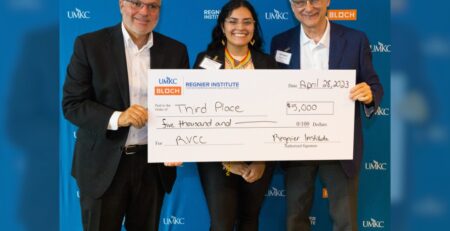Why Microloans Are a Big Deal for Creatives, Entrepreneurs
OK. We’re gonna talk about loans. NO, wait, wait! Hear us out. If you run or plan to run a small business, chances are, you might have to take out a loan; it can be an important facet of growing your business … and sometimes a vital part of getting your operation started. And if you’ve ever ventured into these financial waters, you might know that getting a loan can be tough, especially if you’re new to the whole entrepreneur thing and you don’t have a lot of collateral or a long track record.[[CTA]]
Unfortunately, there aren’t too many loans out there if you consider yourself a creative or if you make products and sell them for a living (aka, you’re a maker). Most banks don’t lend less than $50,000 to entrepreneurs who run smaller operations. (Often, banks just aren’t able.) So that’s why AltCap, a Kansas City community development financial institution, created ARTCap program, which does exactly that: It’s a microloan for all you creative types, no matter if you’re involved in music, theater, dance or literary, visual or performing arts … or maybe you’re a maker and craft fishing lures, chocolate, pet products, etc.
This Kansas City microloan program was so ahead of its time, other cities were calling AltCap to learn more so entities in those places could offer something similar. (Ha! KC ahead of the curve again!)
AltCap’s Business Development Officer Davin Gordon and Community Development and Outreach Manager Megan Crook peel back the layers on this seemingly tricky topic. Learn if this type of loan might be right for your entrepreneurial goals, how and when you should go about getting a microloan and how you should plan for this important financial decision.
Excited about starting or growing your business and want some free guidance about loans and more? Call KCSourcelink at 816-235-6500 or tell us a bit about yourself, and we’ll outline your next steps.
Why offer microloans to creative businesses or artists?
Davin Gordon: Funding for creatives is often looked at from a grant or commission basis. But artists are also entrepreneurs, and they are contributing a lot to our economy. And creatives need a product like ARTCap to grow and continue to do the creative work they do. We see it as being another avenue for creatives to realize their dream of being an artist or a maker.
Megan Crook: Grants aren’t always a sustainable income source and can be unreliable, and so this product is a way to help artists and makers strengthen their businesses. They may not have access to the capital they need to finish a commission or prepare for a new exhibition, but with a loan, they can take on larger projects that might help them grow their business. Grant opportunities don’t always align with project timelines, so needed funding might not be available. A microloan is another resource.
What are some reasons entrepreneurs might consider microloans?
Davin: We’re seeing when a creative or an entrepreneur has an opportunity to grow their business, whether that’s hiring a new employee or creating a new revenue stream for their business, that’s when they might consider it. Or maybe they have an opportunity after they got a huge contract, someone is purchasing their product at wholesale or they have a new album coming out. Basically, they have an opportunity to expand their creative work, and there’s a gap in the capital and in their cash flow. ARTCap can help fill that immediate need so they can create a long-lasting opportunity.
A few artists have used other debt products at higher interests rate, so we have helped them not only consolidate some of that debt but also lended them some capital to help them expand their practice. For example, one of our clients bought a vehicle on a credit card with a higher interest rate. We consolidated that and offered working capital for merchandise and printing vinyl records so they could sell them on their national tour.
When should an entrepreneur seek a microloan?
Davin: If they see an opportunity for growth, if they’re forecasting big strides in their business or if they know an opportunity might present itself, it’s great to establish that relationship sooner than later. Don’t be reactive; be proactive.
Why? We need time to underwrite and analyze a loan. The sooner we establish that relationship, the better. It will simplify the process because we already have that relationship and we will understand their goals.
As soon as you know of something that might be coming up, establish that relationship. Not that you have to apply then and there, but just meet with someone to talk about your needs. Because sometimes what you’re working on might not be the best use of funding—maybe it’s better-suited for a grant. A loan servicer can help you decide the right avenue based on your goals.
Megan: A lot of times with commissioned projects, creatives don’t get paid until the project is complete and that could take months. There are supplies and working capital that artists need in advance. A lot of the time, we’ll see microloan applications for this type of gap funding. And if entrepreneurs have credit issues or other things in the financial makeup of their businesses, it could affect what type of lending they can pursue. Connecting early with us can help us identify problem areas we might be able to address.
What should small businesses do to figure out how to best use a microloan?
Davin: I’d recommend before talking to a lender, have some projections on expenses and income. For example, a 12-month plan: Maybe there are upcoming shows or special holidays or seasons when certain products sell better. That helps a creative gauge monthly expenses because we don’t want to put someone in a financial burden; we want them to understand what they can comfortably afford without making sacrifices. We want to get that understanding of what their financial situation looks like and could look like with a microloan that would fulfill any unmet need in their company or their creative work.
The other thing is have a plan. Sometimes people just tell us they could use the money. I ask them what they want to use the money for. They should identify the best use of funds. The best part about working with artists and creatives is they know how to stretch a dollar and can do a lot with a little. Artists typically know exactly what the funding is for and what the gap is for them. The lesson? Before you walk in, make sure you have a firm understanding of your financial situation.
What’s the criteria for seeking funding through ARTCap?
Davin: It’s similar to any debt product. You’ll want to know your income sources and have your tax returns and bank statements. We’ll also want to look at what your projections are. If you’re working on a new project or adding a new hire, how will that increase your sales or visibility?
We’ve also created our Fast Start loan process. We saw many of our creatives needed only $10,000 or less, so we wanted to eliminate as many barriers to entry as possible and identify a quick way to access capital if your credit score is above 600. We want to see proof of income (bank statements, tax returns, pay stubs) and a resume, portfolio or body of work. And then we’ll need some form of collateral. We can also use equipment or a vehicle as collateral.
With these factors, we can make a loan in 48 hours. We’ve done quite a few Fast Start loans with our artist clients. We originated this concept for our artists but also realized other entrepreneurs in Kansas City might need a quick cash infusion into their business, too.
What other resources in Kansas City should creatives check out?
Megan: We refer artists who need additional help with developing their business to Artists Inc., now a program of the Mid-America Arts Alliance. The Charlotte Street Foundation and ArtsKC also have a lot of great resources and programs.
Davin: And the folks at Made in KC do a great job of working with makers and artisans. Not only does Made in KC help makers sell products, but it also does a great job of bringing others in to educate on finances, marketing and wholesaling. They do a good job of not only supporting artists and creatives but also fostering their growth.
Still with us? See? Great stuff. Since you’re still here and might have some other questions about starting or growing your business, KCSourceLink is here to listen. Tell us a bit about yourself or give us a call at 816-235-6500, and we’ll whip up your free Personal Action Plan to get your business going or help it flourish.





Leave a Reply